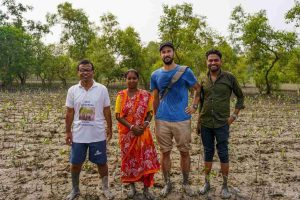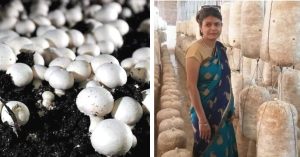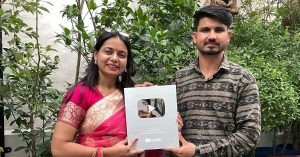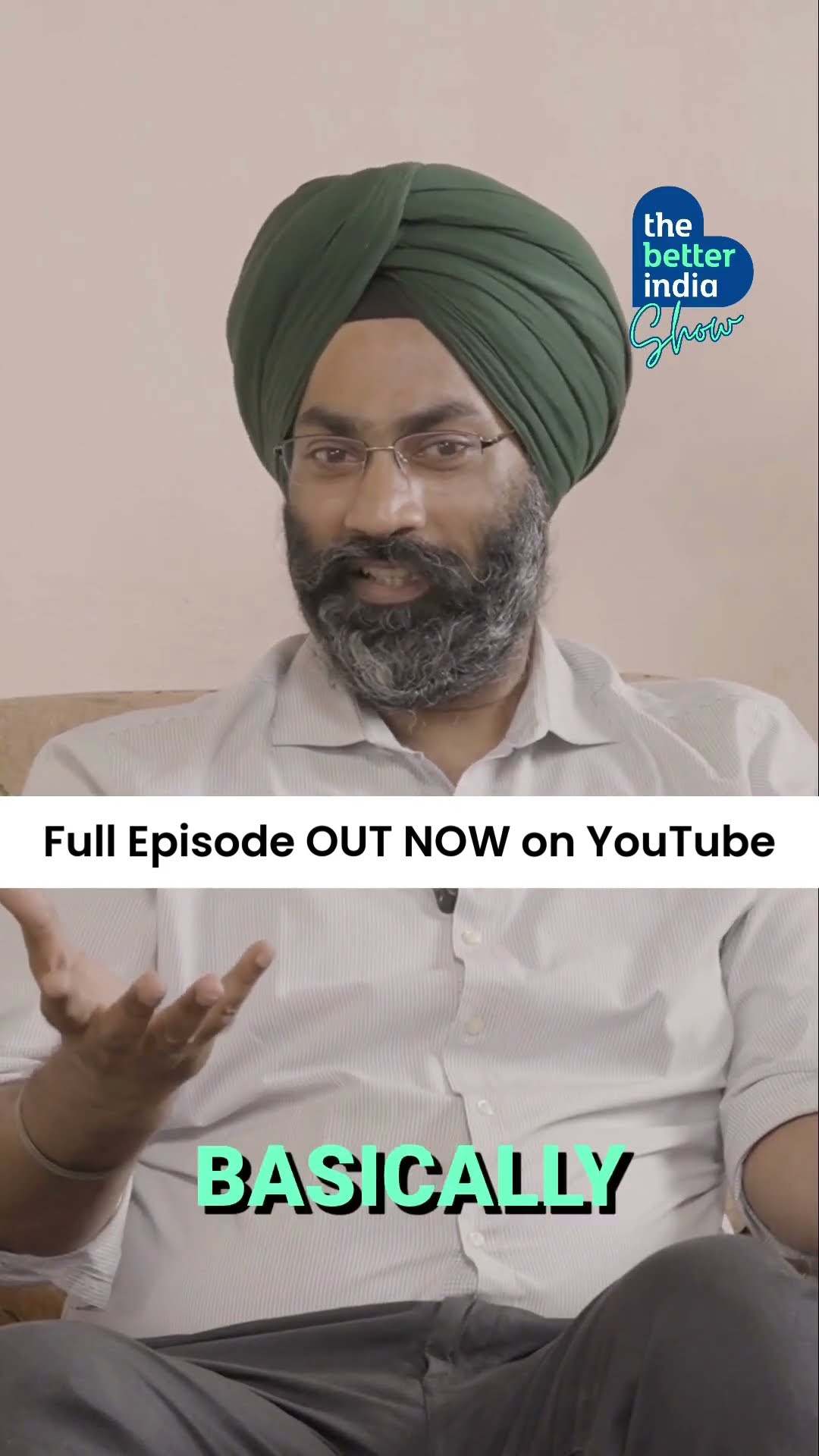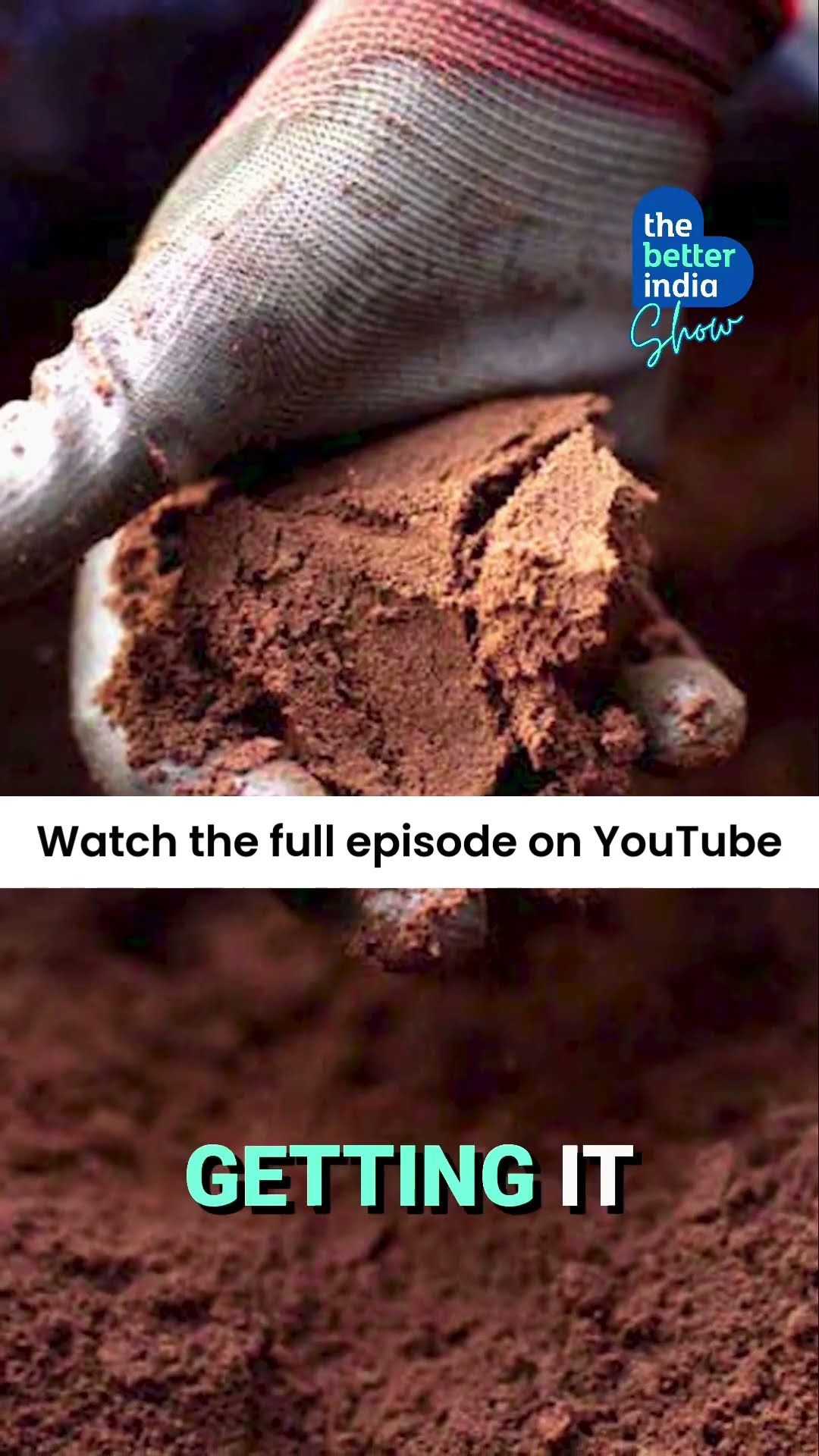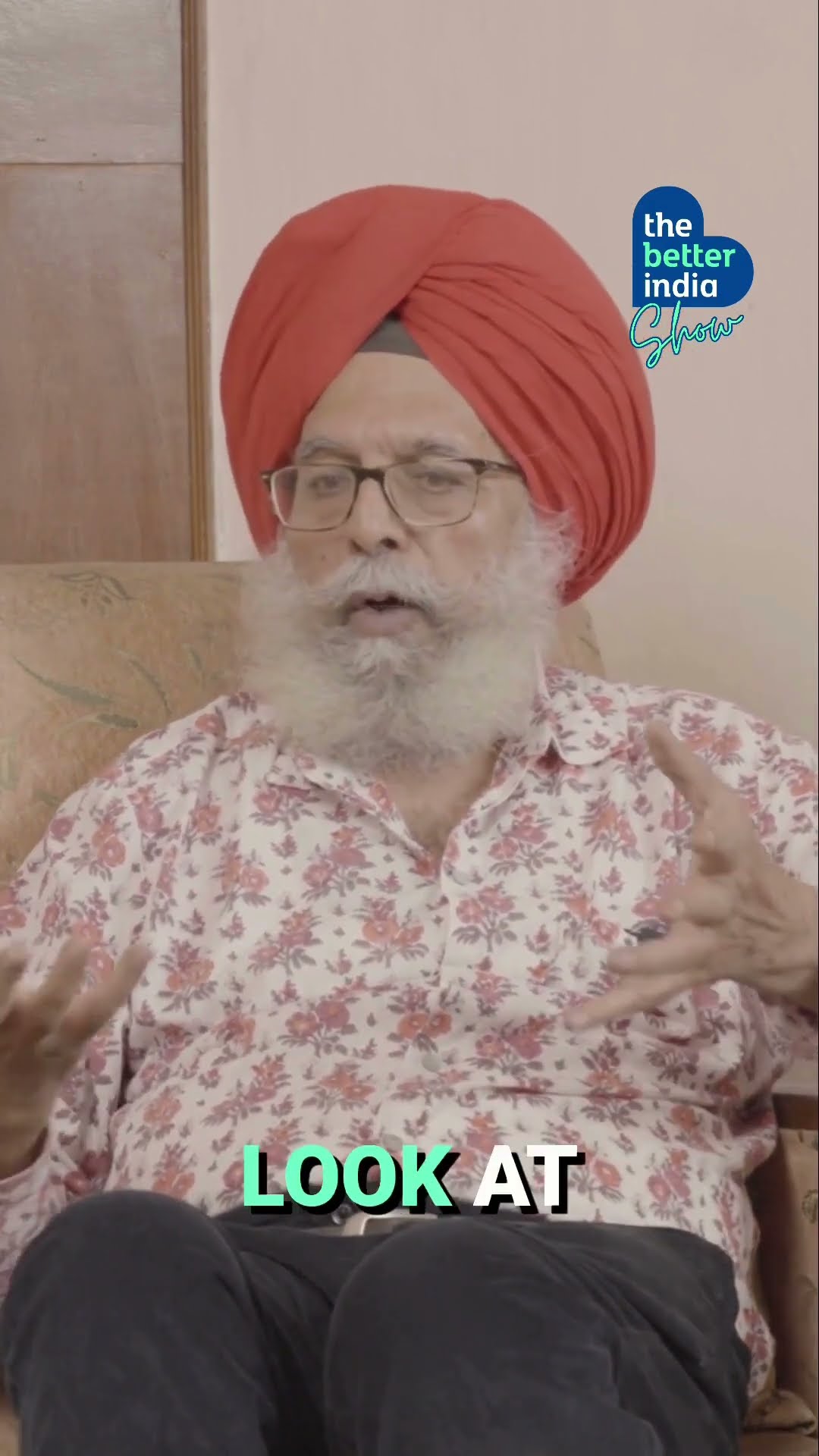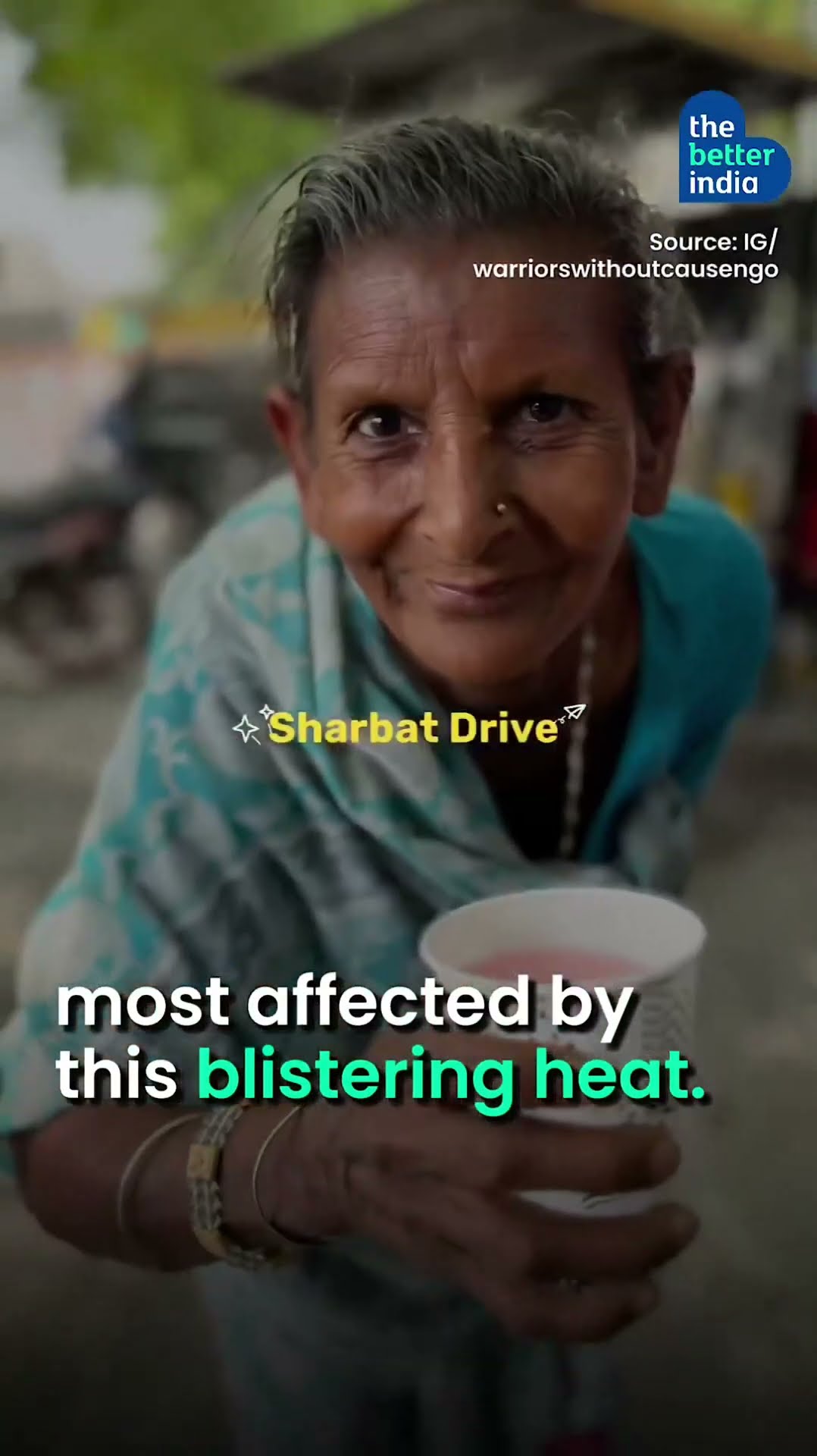At 25, This Agripreneur Has Converted 2500 Tons of Waste into Vermicompost & Trained 2500 Farmers
Yash Dayal Sharma from Saharanpur, Uttar Pradesh, is on a mission to improve the soil health in Indian farms by creating vermicompost through his venture ‘Fertile Beeghas’.
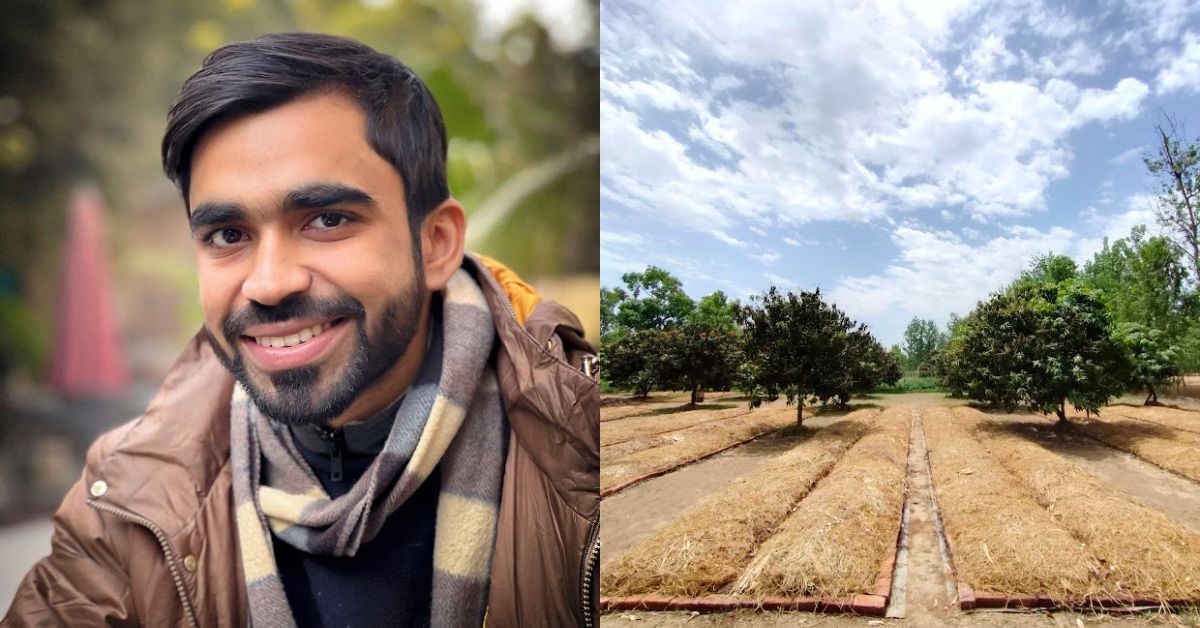
Yash Dayal Sharma grew up reading the books of Dr A P J Abdul Kalam, developing a strong desire to serve the nation. When his first choice, a career in the armed forces didn’t materialise, he shifted his vision to agriculture. Hailing from a family of farmers in Saharanpur, Uttar Pradesh, research during his college days revealed that one of the major problems that our country faces is soil health, leading to several lands becoming uncultivable.
An FAO (Food and Agriculture Organization) and UNCCD (United Nations Convention to Combat Desertification) Global Outlook report states that over 29 percent (96.4 million hectares) of India’s total agricultural land is degraded, wherein the land has lost its top soil. This is a worrying trend as the Indian population is increasing at a rapid pace, while cultivable land is decreasing.
Learning about this alarming fact made the 25-year-old return to his roots in Saharanpur to first understand the problems in the agricultural sector and look at possible solutions. From 2020 to 2021, armed with a certification in organic farming from the Ministry of Agriculture, he interacted with farmers, scientists, and other stakeholders to understand the root causes of soil degradation.
With a firm understanding that soil health had to be improved, a deep dive into the topic led to the understanding that the solution was staring right in his face the entire time — the earthworm.
It is the earthworm that decomposes organic waste into vermicompost.Starting with a trial batch of vermicompost on one acre of his farm, he founded Fertile Beeghas in June 2021.
Over the past three years, the enterprise has transformed over 2,500 tonnes of cattle dung and organic waste into vermicompost. Yash shares he has also provided training to over 2,500 farmers in organic farming so far.
Here’s how he plans to improve the soil fertility of degraded soils.
‘Treat soil as a living entity’
Yash always harboured a vision to create a better India. While pursuing his BA in history from Delhi University, he started a school for underprivileged children called ‘Free School Under The Mowgli Tree’. Here, he encouraged children to think out of the box and develop practical skills as most of them didn’t have access to a formal education.
The imposition of the COVID-19 lockdown brought a halt to the school and led to Yash contemplating his future plans.
“My great-grandfather and grandfather were farmers. I grew up close to nature in a boarding school in Pune. When I was considering what path I wanted to take after my graduation, I chose agriculture as this sector needs a lot of work,” Yash tells The Better India.
Another major reason for choosing agriculture was Dr A P J Abdul Kalam. The former president stressed his vision 2020 for the nation. Although he had written these books decades ago, Yash realised that we are far from reaching that.
“Dr Kalam spoke about the importance of youth and how we should contribute to the betterment of the nation. Inspired by him, I decided to do something good for the country by focusing on agriculture and improving the lives of farmers as well as agricultural land,” reiterates Yash.
When he started visiting farmers in Saharanpur, he was appalled by the ‘cocktail of pesticides’ being used in their farmlands. Constant use of pesticides also has a detrimental effect on soil health.
In 2022, National Rainfed Area Authority (NRAA) CEO Ashok Dalwai said that the Soil Organic Carbon (SOC) content in India had come down to 0.3 percent from one percent in the past 70 years. SOC is one of the major indicators of robust soil and gives soil its fertility, water-retention capacity and more.
“Soil is the root cause of most of our problems. While healthy soil should have at least five to 10 percent SOC, the benchmark in India is one percent. As the statistics show, our farms have less than 0.5 percent. I was shocked by this; visiting farms in Saharanpur was an eye-opener,” he shares.
“I saw many documentaries, read books and met stakeholders. I compared the soil status of farmlands in Western Uttar Pradesh and Haryana with soil samples from Europe. The results were shocking,” shares Yash.
Unless steps are taken to improve the SOC and fertility of the soil, in a few years it will also become non-arable. Realising this, he met farmers, producers, microbiologists, Government officials, and scientists over a year to understand the possible solutions to improve soil health.
Charles Darwin published the solution several centuries ago in his book ‘The Formation of Vegetable Mould, through the Actions of Worms’. “Earthworms improve the physical, chemical and biological properties of soil. They are a farmer’s best friend and no fertiliser works quite like vermicompost,” explains Yash.
Yash then went in search of vermicompost. Unsatisfied with the ones he found in the market, he developed one following “the best scientific practices”.
From 2021 to 2022, he worked on making vermicompost on one acre of his own land in Saharanpur. He distributed samples in nearby farmlands, and once he was satisfied with the results, he started selling them through his company Fertile Beeghas in October 2022.
What’s different about his vermicompost?
Yash states that what differentiates his vermicompost is the manufacturing process.
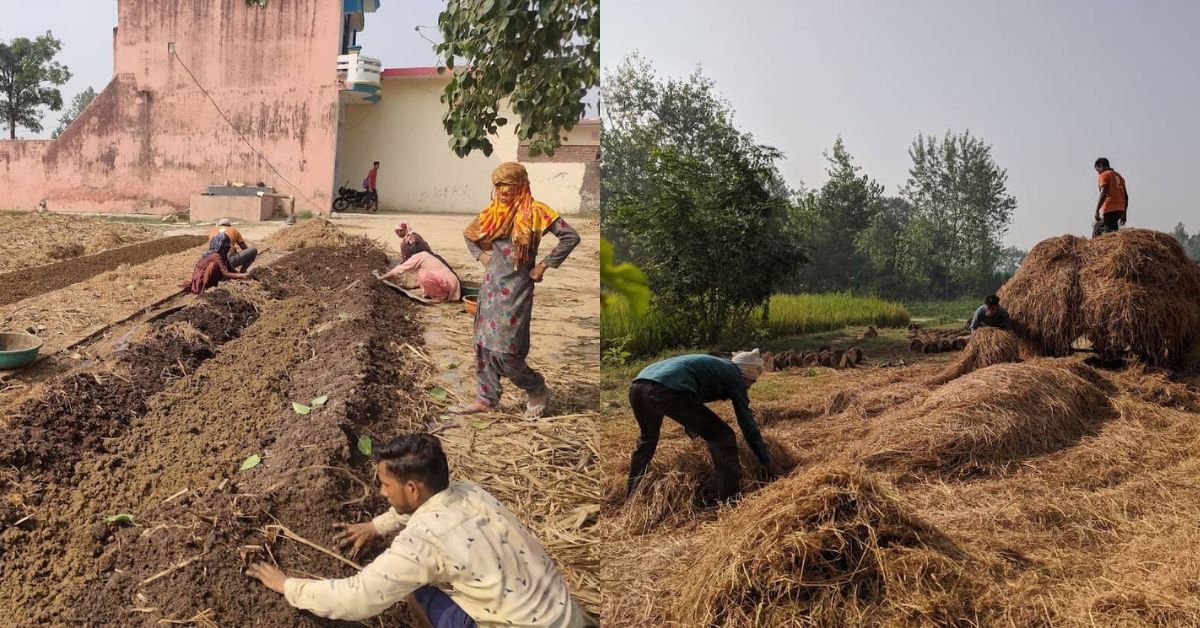
“We treat soil as a living entity, something that most of us have forgotten to do. We invested a lot in research and development to develop the most scientific vermicompost. We use a mix of greens, browns, organic materials, cow dung, and of course, earthworms,” shares Yash.
The secret sauce is enriching it with organic carbon, he states. “While other vermicomposts in the market would have 10 to 20 percent organic carbon, our product has 30 to 35 percent.”
They also introduce crop-specific microbes after harvesting the produce. For example, if the vermicompost is required by apple growers in Himachal, microbes are introduced accordingly.
Fertile Beeghas uses a big storage zone to store, treat and cure the compost. Yash works with over 200 farmers who produce the vermicompost. He works closely with the district agricultural officers in Western Uttar Pradesh who connect him to organic farmers who may benefit from the training. He has also trained over 2,500 farmers in organic farming and making vermicompost.
Kuldeep, a farmer in Saharanpur, shares that he has completely shifted to using vermicompost on his land, which had been ruined by the excessive usage of fertilisers and pesticides.
“The soil health had deteriorated and I had to keep using growth promoters to ensure a good harvest. Over the past three years, I’ve been able to phase out the pesticides slowly, and today, I use only vermicompost. My costs have reduced while my production and soil health have improved,” shares Kuldeep.
The icing on the cake is that Kuldeep now produces his own vermicompost, trained by Yash.
Farmers working with Yash start by making vermicompost on as little as 1/4th of an acre, which would suffice for their own use. If they want to do it commercially, they would need at least one to two acres of land.
So far, Fertile Beeghas has transformed over 2,500 tonnes of cattle dung and organic waste into vermicompost, earning an income of Rs 13.5 lakh in the last two months. They’ve also prevented the burning of over 950 tonnes of rice straws from 100 acres of land.
Yash hopes to train over 10,000 farmers across the country and help them improve their soil health. “Farmers are the torchbearers of our country. Just like we give importance to our physical health, it’s time to devote time and effort to improving the health of our country’s soil.”
You can contact Yash at +91 97112 54856 or email him at [email protected].
Edited by Pranita Bhat; Images Courtesy: Yash Dayal Sharma
If you found our stories insightful, informative, or even just enjoyable, we invite you to consider making a voluntary payment to support the work we do at The Better India. Your contribution helps us continue producing quality content that educates, inspires, and drives positive change.
Choose one of the payment options below for your contribution-
By paying for the stories you value, you directly contribute to sustaining our efforts focused on making a difference in the world. Together, let's ensure that impactful stories continue to be told and shared, enriching lives and communities alike.
Thank you for your support. Here are some frequently asked questions you might find helpful to know why you are contributing?



